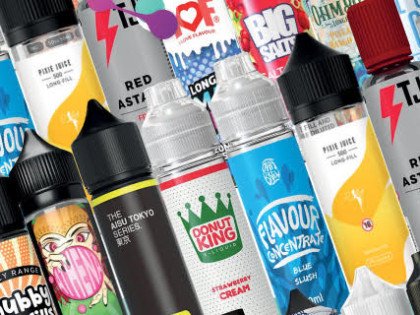It seems exceptionally off that the home to Squape, one of the world’s most well-known atomiser companies, should be anti-vape, but nicotine was banned and smokers faced an extra hurdle if they wanted to switch to a safer alternative.
Just as Europe, and especially the UK, was switching onto ecigs in 2013, Switzerland banned vaping from all public transport. A spokesperson for the Public Transportation Union said the measures had to be taken because they couldn’t tell the difference between a burning cigarette and a sweet-smelling metallic vaping device.
Vaping was ‘tolerated’ at the time but opposition grew in the coming year. Self-appointed experts spoke against vaping throughout 2014; calling for bans to be extended. Despite a positive study from the University of Lausanne, lung specialists wanted tougher measures taken. The sale of nic-free products was allowed to continue but vapers had to seek out nicotine-containing juices from abroad.
For a nation that is dedicated to clean air, there was a disgusting smell in the air in 2016 as vaping remained restricted yet Philip Morris were allowed to open an iQOS flagship store in Lausanne.
A spokesperson for the BASS institute said: “The ban on the sale of e-cigarettes containing nicotine is puzzling because traditional cigarettes, which are probably more harmful, are permitted.” Ironically, Switzerland is also in possession of one of the world’s largest pure nicotine supplies.
Not quite that puzzling when one factors in that Philip Morris has a head office in the country (where smoking kills 9,500 people a year). It contributes to a situation where 28.2% of the population smokes, 68% higher than the United States.
Currently, according to estimates, 0.7% of the Swiss population use e-cigarettes, which equates to around 60,000 people. This number has remained relatively static for the last five years but could be set to change.
Switzerland’s Federal Administrative Court has thrown out the Federal Food Safety and Veterinary Office’s ban on nicotine. Tuesday’s decision has immediate effect and shops can sell nicotine-containing liquids to vapers and would-be ecig users.
InSmoke’s Stefan Meile, the company that brought the case to court, said that it would be an important signal to the Swiss government. In turn, a government spokesperson said that they were going to legalise the sale of nicotine liquids anyway.
Dave Cross
Journalist at POTVDave is a freelance writer; with articles on music, motorbikes, football, pop-science, vaping and tobacco harm reduction in Sounds, Melody Maker, UBG, AWoL, Bike, When Saturday Comes, Vape News Magazine, and syndicated across the Johnston Press group. He was published in an anthology of “Greatest Football Writing”, but still believes this was a mistake. Dave contributes sketches to comedy shows and used to co-host a radio sketch show. He’s worked with numerous start-ups to develop content for their websites.
Join the discussion
Harm Reduction For The Rich
The United Kingdom risks becoming a harm reduction country only for the wealthy, according to Michael Landl of the World Vapers’ Alliance
Longfills as an Alternative to Disposables
The disposable vape ban will impact many people, but there’s no reason to be concerned… Grab yourself a pod kit and a Longfill and you’ll be back to vaping the way you want to, just in a cheaper, more environmentally friendly and legal way.
COP10 is a Threat to Safer Nicotine Products
The EU obscures its position on low-risk alternatives to smoking before the WHO COP10 conference in Panama, starting Monday
Nicotine Is Not A Culprit
Planet of the Vapes has always encouraged smokers to use the quit product that works best for them, and snus is a product that seems to be unfairly blocked because it contains nicotine






-listing400.jpg)




